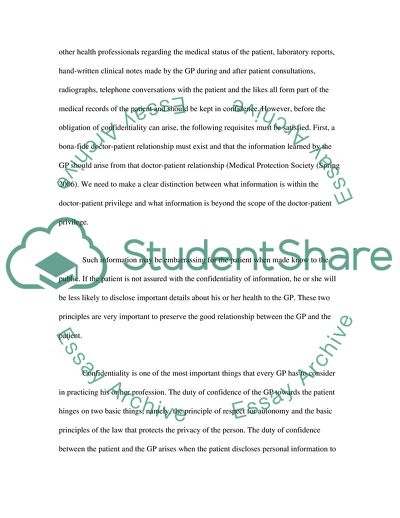Cite this document
(Law and Practise Surrounding the Obligation of Confidentiality Owed b Case Study - 2, n.d.)
Law and Practise Surrounding the Obligation of Confidentiality Owed b Case Study - 2. Retrieved from https://studentshare.org/law/1712468-medical-law
Law and Practise Surrounding the Obligation of Confidentiality Owed b Case Study - 2. Retrieved from https://studentshare.org/law/1712468-medical-law
(Law and Practise Surrounding the Obligation of Confidentiality Owed B Case Study - 2)
Law and Practise Surrounding the Obligation of Confidentiality Owed B Case Study - 2. https://studentshare.org/law/1712468-medical-law.
Law and Practise Surrounding the Obligation of Confidentiality Owed B Case Study - 2. https://studentshare.org/law/1712468-medical-law.
“Law and Practise Surrounding the Obligation of Confidentiality Owed B Case Study - 2”. https://studentshare.org/law/1712468-medical-law.


